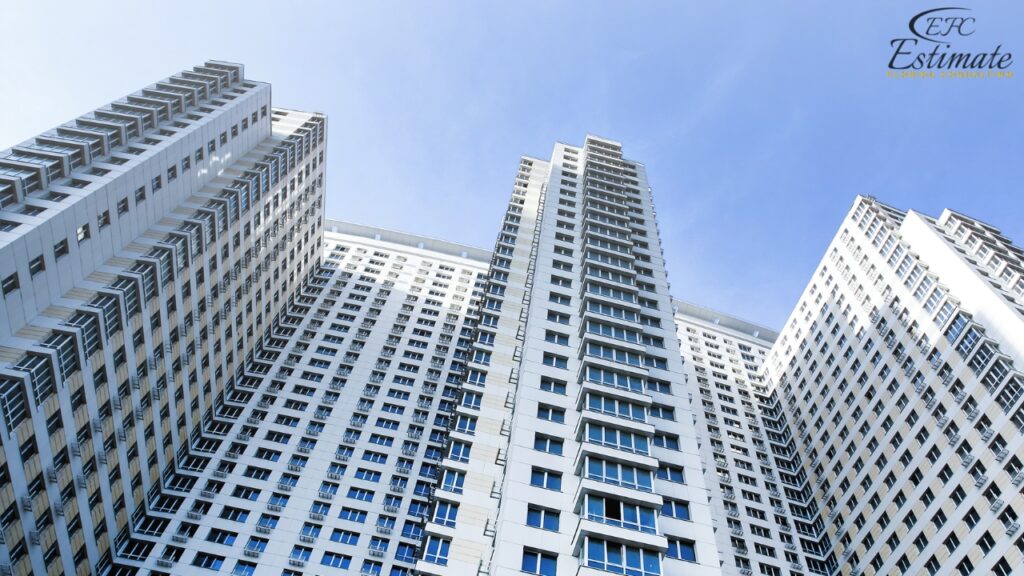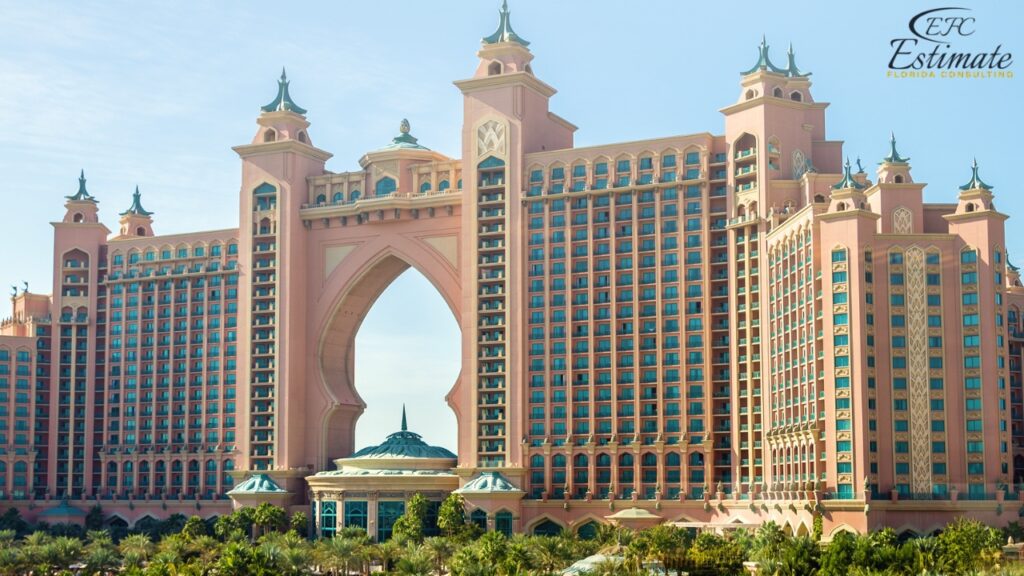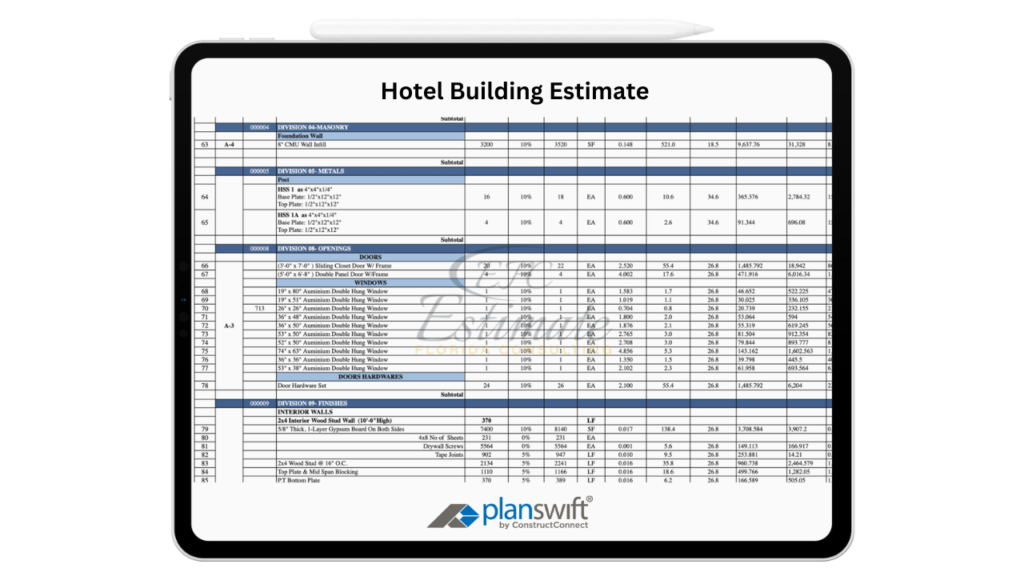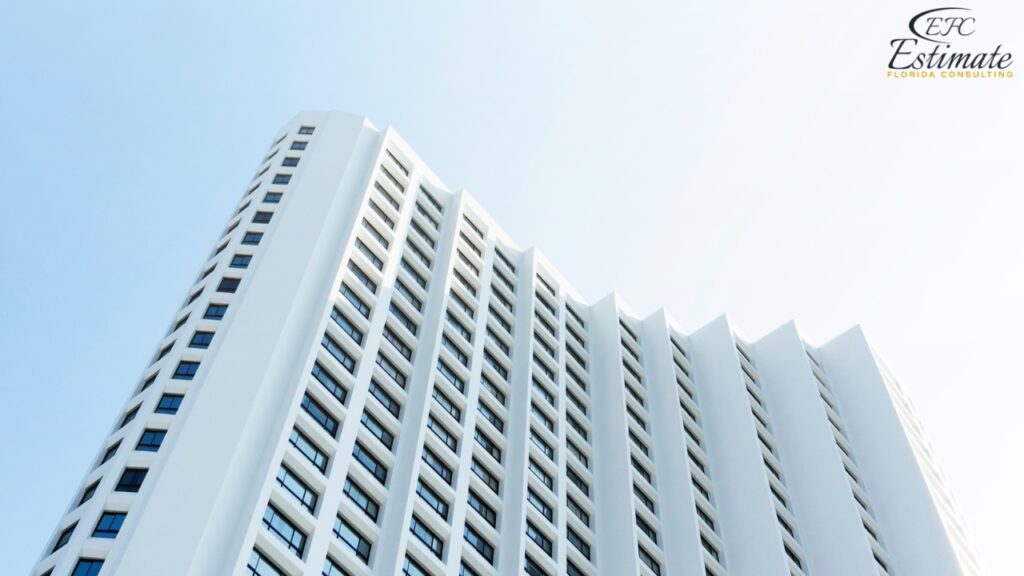How Much Does It Cost to Build a 100-Room Hotel?
Building a 100-room hotel is a substantial investment that requires careful planning, budgeting, and execution. The cost of constructing a hotel can vary widely based on several factors, including location, quality of materials, design complexity, and additional amenities. In this blog, we will explore the various elements that contribute to the overall cost of building a 100-room hotel, providing detailed breakdowns and cost estimates to help you understand the financial commitment required for such a project.

Average Cost Breakdown
The cost of building a 100-room hotel can range from $14 million to $54.6 million or more, depending on the level of luxury and specific requirements. On average, here’s a general cost breakdown:
Hotel Type | Cost per Square Foot | Total Cost (in millions) |
Economy Hotel | $140 – $210 | $14 – $21 |
Mid-Range Hotel | $210 – $420 | $21 – $35 |
Luxury Hotel | $420 – $700 | $35 – $70 |
Economy Hotel: $14 - $21 million
An economy hotel is typically designed for budget-conscious travelers and offers basic amenities. The construction cost for such hotels ranges from $140 to $210 per square foot. This type of hotel includes standard guest rooms, minimal public spaces, and basic services. While it focuses on cost-efficiency, it still needs to meet regulatory standards and provide a comfortable stay for guests. These hotels often feature straightforward designs and functional layouts, prioritizing affordability and practicality.
Mid-Range Hotel: $21 - $35 million
A mid-range hotel caters to travelers seeking more amenities and comfort than an economy hotel. The construction cost for a mid-range hotel ranges from $210 to $420 per square foot. These hotels typically include more spacious guest rooms, a restaurant, a fitness center, meeting rooms, and enhanced public areas. The additional amenities and improved design contribute to the higher cost, but they also attract a broader range of guests, from business travelers to families. Mid-range hotels strike a balance between affordability and comfort, offering a more upscale experience without the high costs associated with luxury accommodations.
Luxury Hotel: $35 - $70 million
A luxury hotel offers high-end amenities and exceptional service, targeting upscale travelers. The construction cost for a luxury hotel ranges from $420 to $700 per square foot. These hotels feature large, elegantly designed guest rooms, multiple dining options, extensive recreational facilities, spa services, and state-of-the-art conference centers. The emphasis on luxury, aesthetics, and top-notch service justifies the higher construction costs. Luxury hotels often incorporate unique architectural elements, premium materials, and cutting-edge technology to provide an unparalleled guest experience. They cater to discerning travelers seeking exclusivity, comfort, and a wide range of amenities.

Factors Affecting the Cost of Building a Hotel
Several factors can influence the cost of building a 100-room hotel, including:
Location
The location of the hotel significantly impacts construction costs. Urban areas with higher land prices and stricter building regulations will generally be more expensive than rural locations. For example, land acquisition in a city can cost between $1.4 million and $7 million, whereas in rural areas, it might range from $700,000 to $2.8 million. Additionally, the cost of labor and materials can vary depending on the region, with urban labor costs potentially being 20-30% higher. The location also affects the hotel’s potential revenue, as urban hotels may attract more guests due to proximity to business centers, attractions, and transportation hubs.
Design and Architecture
The design and architectural complexity of the hotel can significantly affect the cost. Innovative designs, high-end finishes, and unique architectural features can add to the overall expense. A standard design might cost around $140 per square foot, while a more complex and aesthetically pleasing design could cost up to $700 per square foot. Additionally, sustainable building practices and green certifications can increase upfront costs but may lead to long-term savings through energy efficiency and reduced operational expenses. Thoughtful design can also enhance guest experience, operational efficiency, and the hotel’s marketability.
Quality of Materials
The quality of materials used in construction plays a crucial role in determining the overall cost. High-quality, durable materials will increase the initial expense but can result in lower maintenance costs and a longer lifespan for the building. For instance, premium flooring might cost $14 per square foot, compared to $7 per square foot for standard flooring. The choice of materials should balance upfront costs with long-term benefits, ensuring the hotel remains attractive and functional over time.
Size and Scale
The size and scale of the hotel, including the number and size of guest rooms and public areas, directly impact the cost. Larger rooms and more extensive facilities will require more materials and labor, increasing the overall expense. For example, increasing the average room size by 50 square feet can add $700,000 to $1.4 million to the total cost. The scale of the project should align with market demand and the target guest profile, ensuring the hotel offers appropriate amenities and accommodations.
Amenities and Facilities
The inclusion of amenities and facilities such as restaurants, fitness centers, swimming pools, and conference rooms can significantly increase the cost of construction. For example, adding a restaurant can cost between $700,000 and $1.4 million, while a fitness center might add $280,000 to $700,000. These amenities enhance the guest experience and can generate additional revenue, but they also require careful planning and investment. The range and quality of amenities should match the hotel’s positioning and guest expectations, providing value-added services that enhance the overall stay.
Regulatory Compliance
Meeting local, state, and federal regulations, including safety standards, environmental regulations, and accessibility requirements, can add to the cost. These regulations are necessary to ensure the safety and comfort of guests and staff, as well as to protect the environment. Compliance measures, such as installing fire safety systems, accessible facilities, and energy-efficient systems, can add 5-10% to the overall construction cost. Staying compliant with regulations not only ensures legal and operational safety but also enhances the hotel’s reputation and appeal to guests.
Construction Components
Foundation
The foundation is a critical component of hotel construction, ensuring stability and longevity. Costs can vary depending on soil conditions and the complexity of the design, typically ranging from $1.4 million to $4.2 million. A robust foundation is essential to support the weight of the structure and withstand environmental factors like earthquakes and subsidence. Proper site assessment and foundation design can prevent structural issues and ensure the long-term safety and stability of the hotel.

Structural Steel
Structural steel is used to construct the framework of the hotel, providing the necessary support for the floors and roof. The cost of steel has been volatile, influenced by global supply and demand, with expenses often between $2.8 million and $5.6 million. Using high-strength steel can increase initial costs but offers long-term durability and safety. Steel structures also allow for more flexible and innovative designs, accommodating various architectural and functional requirements.
Roofing
The cost of roofing varies significantly based on the design and materials used, ranging from $700,000 to $2.8 million. High-quality roofing materials, such as metal or slate, can increase the cost but provide greater durability and aesthetic appeal. Proper roofing is essential to protect the building from weather elements and ensure energy efficiency. Advanced roofing solutions can also improve energy efficiency and contribute to environmental sustainability, enhancing the hotel’s overall value.
Flooring
Flooring includes both the guest rooms and public areas. High-quality flooring materials, such as hardwood or premium carpet, can cost between $1.4 million and $2.8 million. Durable and aesthetically pleasing flooring is necessary to ensure guest comfort and ease of maintenance. The choice of flooring materials should balance cost, durability, and appearance, providing a comfortable and attractive environment for guests.
Concrete Work
Concrete is used extensively in hotel construction for foundations, floors, and structural elements. The cost of concrete can vary based on the quality and the amount needed, generally ranging from $1.4 million to $4.2 million. High-performance concrete can offer greater strength and longevity but at a higher cost. Properly installed concrete work ensures the structural integrity and longevity of the hotel. Concrete also provides flexibility in design and can be used to create various structural and decorative elements.
90% More Chances to Win Projects With Our Estimate!
- Multi-Family Building
- Hotel Building
- Hospital Building
- Warehouse Building
- School & University Building
- High-Rise Building
- Shopping Complex
- Data Center Building

Electrical Systems
Electrical systems in a hotel are complex, covering lighting, power supply, HVAC systems, and other electronic amenities. The cost of installing these systems can range from $1.4 million to $4.2 million. Advanced lighting systems, including energy-efficient LED lights, can provide energy efficiency but can be costly to install. Ensuring robust and reliable electrical infrastructure is critical for the safety and functionality of the hotel, supporting various operations and guest needs. Well-designed electrical systems can also reduce operational costs and enhance the guest experience with advanced lighting and audiovisual effects.
Plumbing and HVAC
Plumbing and HVAC systems are essential for maintaining comfort and sanitation. The cost includes installing restrooms, kitchens, and climate control systems, typically ranging from $2.1 million to $4.2 million. High-efficiency systems can reduce operational costs over time but require a higher initial investment. Properly designed plumbing and HVAC systems enhance the guest experience and ensure compliance with health and safety regulations. Efficient systems also contribute to environmental sustainability by reducing energy and water consumption.
Additional Costs to Consider
In addition to the basic construction costs, several other expenses can influence the total cost of building a hotel:
Land Acquisition
The cost of acquiring the land for the hotel can be substantial, especially in urban areas. This expense includes the purchase price, legal fees, and any necessary site preparation, such as clearing existing structures. Securing an optimal location that offers accessibility and visibility while remaining within budget is a crucial step in the planning process. For example, land acquisition can range from $1.4 million to $7 million depending on the location. Choosing a strategic location can also enhance occupancy rates and revenue generation by making the hotel more accessible and attractive to guests.
Infrastructure and Utilities
The cost of providing infrastructure and utilities, such as roads, parking, water, electricity, and sewage, can add significantly to the overall expense, typically ranging from $700,000 to $1.4 million. Ensuring adequate infrastructure to support hotel operations and guest needs is essential for the safety and convenience of guests. Additionally, incorporating sustainable infrastructure solutions can reduce long-term operational costs and environmental impact. Well-planned infrastructure can also improve traffic flow, reduce congestion, and enhance the overall experience for guests.
Regulatory Compliance
Meeting local, state, and federal regulations, including safety standards, environmental regulations, and accessibility requirements, can add to the cost. These regulations are necessary to ensure the safety and comfort of guests and staff, as well as to protect the environment. Compliance measures, such as installing fire safety systems, accessible facilities, and energy-efficient systems, can add 5-10% to the overall construction cost. Staying compliant with regulations not only ensures legal and operational safety but also enhances the hotel’s reputation and appeal to guests.

Financing Costs
Interest on loans and other financing costs can add significantly to the overall expense, often between $700,000 and $2.8 million. Securing favorable financing terms and managing debt effectively is crucial for the financial sustainability of the project. Exploring various financing options, such as public-private partnerships, can provide additional funding sources and reduce the financial burden on the primary stakeholders. Effective financial management can also improve cash flow, allowing for timely project completion and reducing the risk of cost overruns.
Interior Design and Furnishings
The cost of interior design and furnishings can significantly impact the overall budget, typically ranging from $1.4 million to $4.2 million. High-quality furniture, fixtures, and décor enhance the guest experience and contribute to the hotel’s overall aesthetic appeal. Investing in durable and stylish furnishings can reduce long-term replacement costs and increase guest satisfaction. The interior design should reflect the hotel’s brand and target market, creating a cohesive and inviting atmosphere.
Example Cost Calculation
Let’s consider an example of a mid-range hotel with a total floor area of 50,000 square feet:
Component | Estimated Cost (in millions) |
Base Construction Cost | $21 – $35 |
Foundation | $2.1 – $4.2 |
Structural Steel | $2.8 – $5.6 |
Roofing | $0.7 – $2.8 |
Flooring | $1.4 – $2.8 |
Concrete Work | $1.4 – $4.2 |
Electrical Systems | $1.4 – $4.2 |
Plumbing and HVAC | $2.1 – $4.2 |
Land Acquisition | $1.4 – $7 |
Infrastructure and Utilities | $0.7 – $1.4 |
Regulatory Compliance | $2.1 – $3.9 |
Interior Design and Furnishings | $1.4 – $4.2 |
Financing Costs | $0.7 – $2.8 |
Total Cost | $50.8 – $98.3 |
Download Template For Hotel Building Project Breakdown
- Materials list updated to the zip code
- Fast delivery
- Data base of general contractors and sub-contractors
- Local estimators

Conclusion
Building a 100-room hotel is a significant financial undertaking that requires careful planning and consideration of various factors. The cost can vary widely depending on the level of luxury, location, design, and amenities of the hotel. By understanding these factors and budgeting for additional expenses such as land acquisition, infrastructure, regulatory compliance, financing, and interior design, stakeholders can make informed decisions and ensure the successful completion of the project. Whether building an economy, mid-range, or luxury hotel, the investment can provide substantial benefits, including increased revenue, enhanced guest experience, and the creation of a lasting brand presence.
FAQs
The average cost of building a 100-room hotel can range from $14 million to $70 million, depending on the level of luxury and specific requirements.
- Economy Hotel: $14 – $21 million
- Mid-Range Hotel: $21 – $35 million
- Luxury Hotel: $35 – $70 million
Several factors can influence the cost, including:
- Location: Urban areas are more expensive due to higher land prices and stricter regulations.
- Design and Architecture: Innovative designs and high-end finishes increase costs.
- Quality of Materials: Higher quality materials can increase initial costs but reduce maintenance expenses.
- Size and Scale: Larger rooms and more extensive facilities require more materials and labor.
- Amenities and Facilities: Additional amenities like restaurants and fitness centers increase costs.
- Regulatory Compliance: Meeting safety, environmental, and accessibility regulations adds to the cost.
Land acquisition costs can vary significantly based on location. In urban areas, it can range from $1.4 million to $7 million, while in rural areas, it might be between $700,000 and $2.8 million.
- Foundation: $1.4 million to $4.2 million
- Structural Steel: $2.8 million to $5.6 million
- Roofing: $700,000 to $2.8 million
- Flooring: $1.4 million to $2.8 million
- Concrete Work: $1.4 million to $4.2 million
- Electrical Systems: $1.4 million to $4.2 million
- Plumbing and HVAC: $2.1 million to $4.2 million
- Infrastructure and Utilities: $700,000 to $1.4 million
- Regulatory Compliance: $2.1 million to $3.9 million
- Financing Costs: $700,000 to $2.8 million
- Interior Design and Furnishings: $1.4 million to $4.2 million
For a mid-range hotel with a total floor area of 50,000 square feet, the estimated costs are:
- Base Construction Cost: $21 – $35 million
- Foundation: $2.1 – $4.2 million
- Structural Steel: $2.8 – $5.6 million
- Roofing: $0.7 – $2.8 million
- Flooring: $1.4 – $2.8 million
- Concrete Work: $1.4 – $4.2 million
- Electrical Systems: $1.4 – $4.2 million
- Plumbing and HVAC: $2.1 – $4.2 million
- Land Acquisition: $1.4 – $7 million
- Infrastructure and Utilities: $0.7 – $1.4 million
- Regulatory Compliance: $2.1 – $3.9 million
- Interior Design and Furnishings: $1.4 – $4.2 million
- Financing Costs: $0.7 – $2.8 million
- Total Cost: $50.8 – $98.3 million
Google Reviews



Process To Get The Cost to Build a 100-Room Hotel Estimate Report
Here I am going to share some steps to get the cost to build a 100-room hotel estimate report.
-
You need to send your plan to us.
You can send us your plan on info@estimatorflorida.com
-
You receive a quote for your project.
Before starting your project, we send you a quote for your service. That quote will have detailed information about your project. Here you will get information about the size, difficulty, complexity and bid date when determining pricing.
-
Get Estimate Report
Our team will takeoff and estimate your project. When we deliver you’ll receive a PDF and an Excel file of your estimate. We can also offer construction lead generation services for the jobs you’d like to pursue further.

